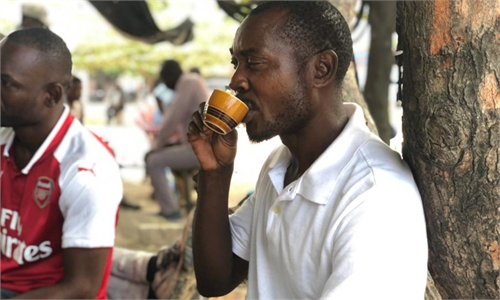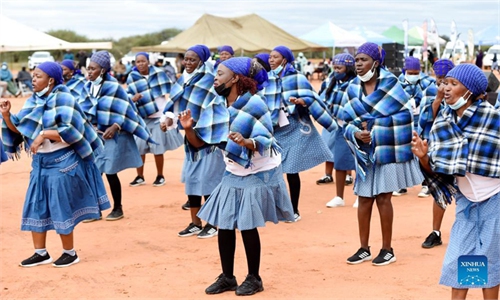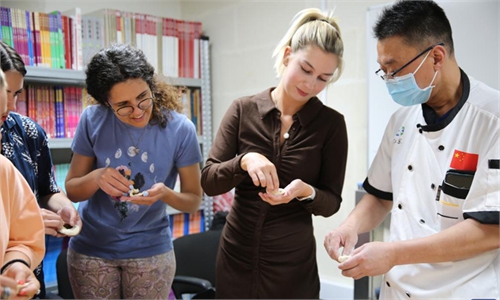ARTS / ART
Artsy traffic boxes liven up NW China’s frontier city
A touch of whimsy
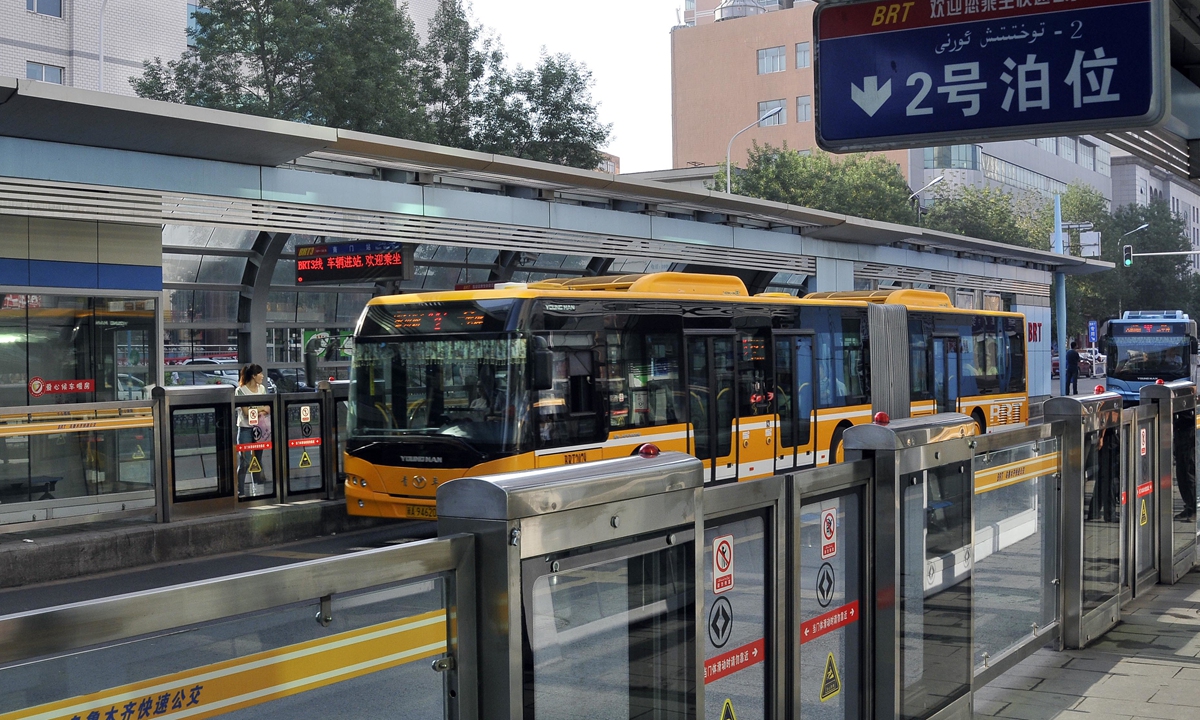
Carefully decorated bus stops in Urumqi, Northwest China's Xinjiang Uygur Autonomous Region Photos: IC
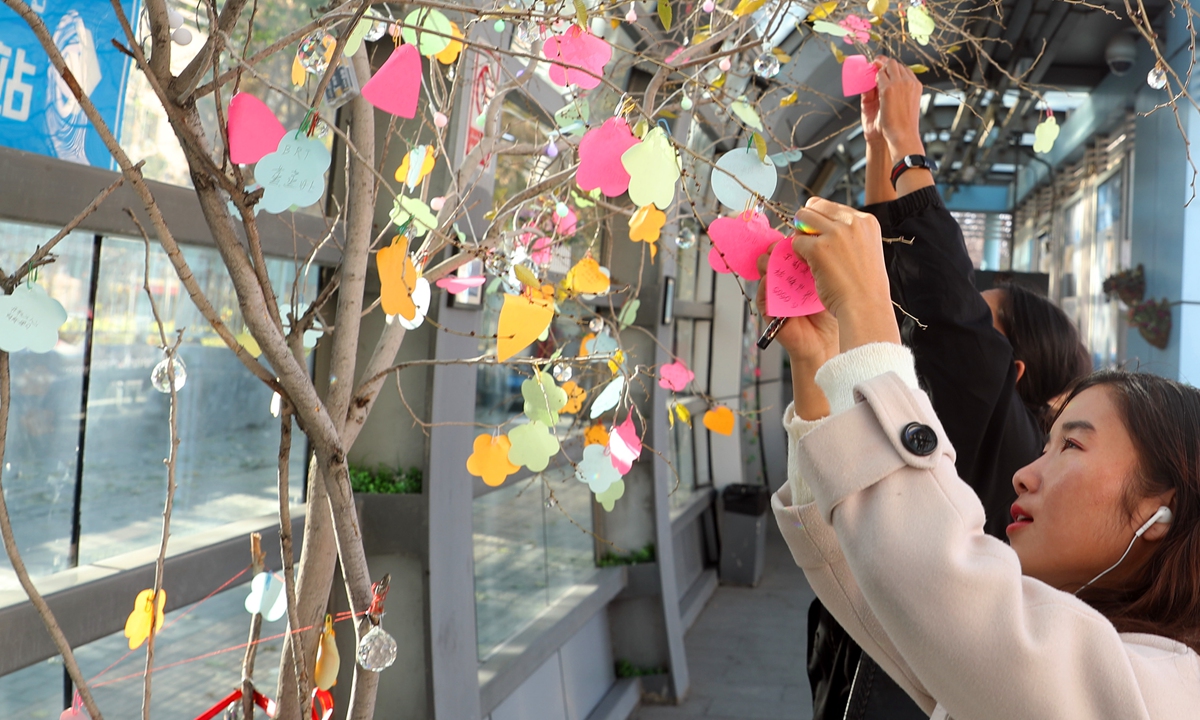
Carefully decorated bus stops in Urumqi, Northwest China's Xinjiang Uygur Autonomous Region Photos: IC
Street art is taking over Bole, a border city in Northwest China's Xinjiang Uygur Autonomous Region.Ephemeral and slightly unorthodox, street art has a mixed reputation. Nevertheless, this art form is appreciated by the locals in Bole as a form of cultural branding.
"That's a bit of impressionism in the top-left corner," Yang Suming, 57, jokingly said about his painting on a traffic box at a downtown intersection. Many volunteers like Yang are using their paintbrushes to add a touch of liveliness to the city.
"It is whimsical and beautiful," Yang added.
Unlike the graffiti elsewhere, spray cans and bold captions are not common practices in Bole. Yet the expressions of art still brim with a sense of creativity and Chinese aesthetics.
"Lotus flowers are commonly seen in traditional Chinese ink and wash painting. Now, I use acrylic to depict them with a modern interpretation of brightness," Yang said. As an oil painter, he has volunteered to show his creativity on several traffic boxes.
"I try to add as many details as possible to the lotus. I still need to refine the stems. It's hoped that the vividness could convince commuters that it's part of nature," Yang said.
Meticulous accounts in the real world nurture the creativity of pavement artists. Moreover, there is always a place for humor in the realm of street art. At a shopping haunt in Bole, Zhang Wenbin is adding life to some caricature figures.
"These traffic boxes just look metallic and cold. It would be a pity if they remain unnoticed and uncolored in such a densely populated area. People would love to see the cartoon figures they have been familiar with and take photos," Zhang said.
The working environment for these pavement artists can be arduous. Zhang, for instance, has to squeeze into the gap between two traffic boxes. If he pops his head out of the boxes, he may just surprise the passersby.
"I've been painting these boxes for at least seven hours today. This is my service to the city. I would never charge for this," he said.
Both Zhang and Yang are adults with established knowledge of cultural norms. Children, however, have their own interpretation, which is simple but dynamic.
"Our painting depicts the city of the future. In this city, we have the greenest forest and the cleanest water. People and animals live in harmony," 10-year-old Han Junyang said. Under the scorching sunlight, he and some other children have been painting a rambling city for hours.
"These children may not grasp the basic notion of cultural development. But by painting these traffic boxes, they are making Bole a better place," said 32-year-old Fan Wenjie, keenly observing these young artists.
Bole has launched a painting campaign to add more cultural attractions to the city's 532 traffic boxes, which has appealed to artists from all walks of life.
Thanks to 65 volunteers, more than 160 traffic boxes have since been transformed into small art galleries.
